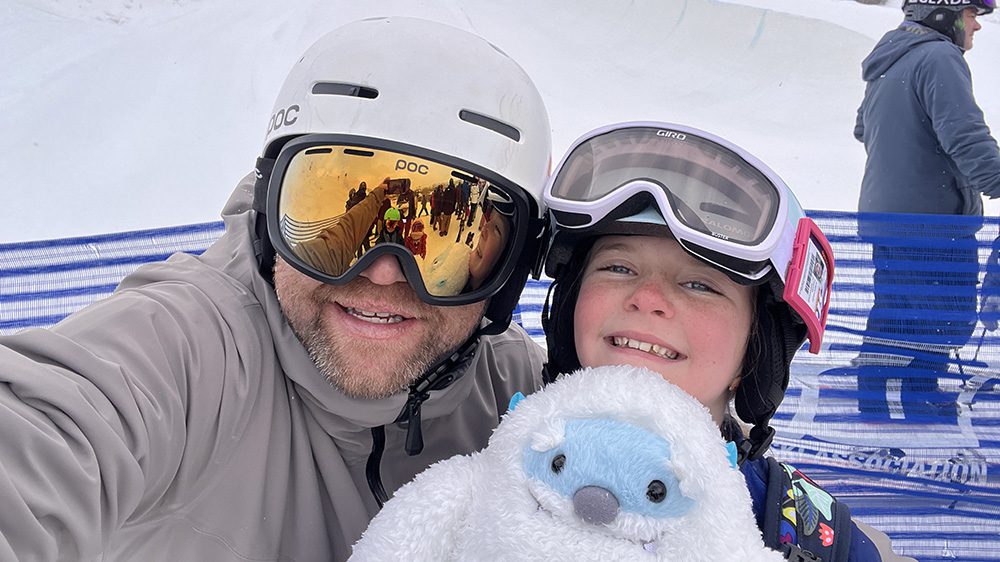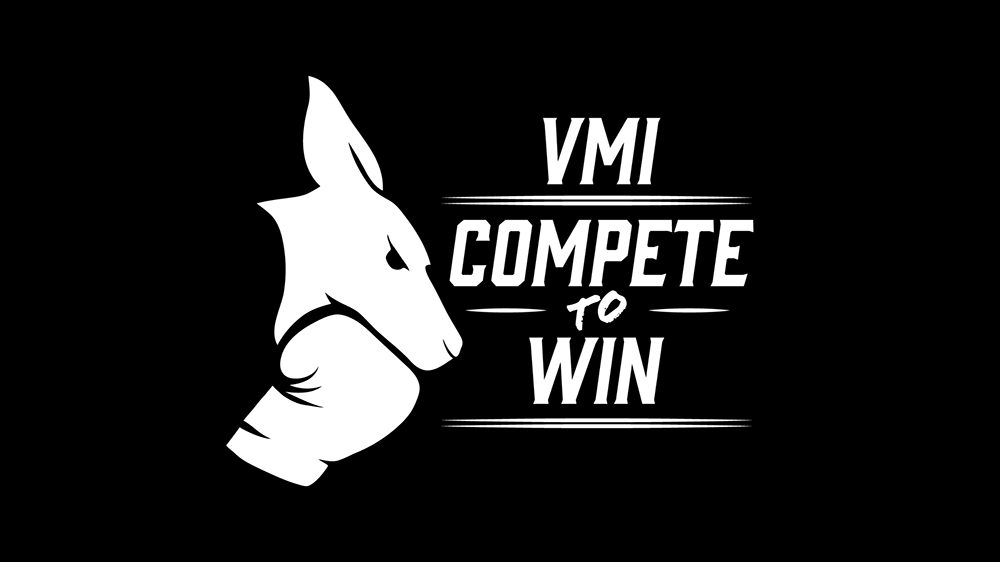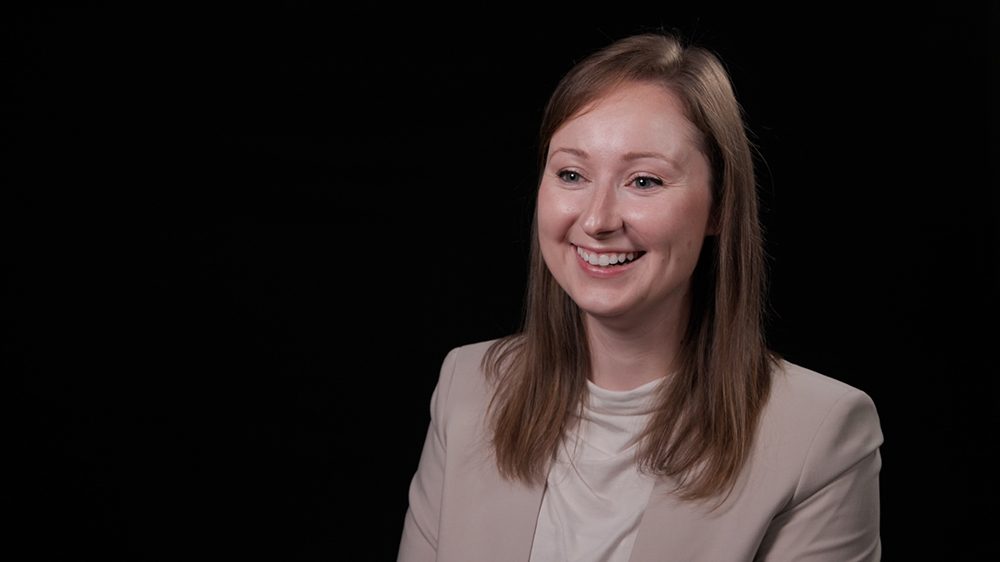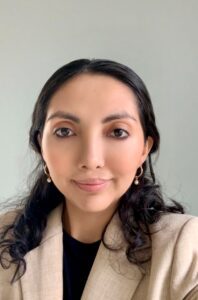 Siles-Suaznabar earned a Bachelor of Arts degree from VMI with a double major in international studies and modern languages and cultures (Spanish) and now works at Washington Navy Yard in Washington, D.C. For her SHECP internship in summer 2016, Siles-Suaznabar worked at City Squash, a nonprofit focused on enabling New York City youth to fulfill their academic, athletic, and personal potential.
Siles-Suaznabar earned a Bachelor of Arts degree from VMI with a double major in international studies and modern languages and cultures (Spanish) and now works at Washington Navy Yard in Washington, D.C. For her SHECP internship in summer 2016, Siles-Suaznabar worked at City Squash, a nonprofit focused on enabling New York City youth to fulfill their academic, athletic, and personal potential.
Her days began by taking a 6:30 a.m. train from Brooklyn to City Squash in the Bronx, where she helped students with ACT and SAT prep as well as other Squash activities. “I would eat lunch with them, study with them, and help them to apply to college,” she said. With 90% of her students being Spanish speaking and bilingual, Siles-Suaznabar enjoyed changing their perspectives on the English language. Standardized testing vocabulary was one of the areas students struggled in, and Siles-Suaznabar would help them with memory tricks and show the similarities in Spanish and English root words. She loved “making that light bulb moment go off” when her students would say, “‘I know this word!’”
Along the way, Siles-Suaznabar made close friendships with her fellow SHECP interns, learned to live frugally, and, perhaps most importantly, she gained confidence. “Prior to [SHECP], I lived in Washington, D.C., my entire life, and I’m a tiny, quiet girl,” she quipped. VMI taught her to lead, but she hadn’t yet practiced those skills in a real-life situation. “I’ve never really spoken out unless I had to, and VMI pushes speaking out, but this is a different type of speaking out when living in New York.” In one example, Siles-Suaznabar was standing at the Times Square platform when she saw a man board the train with an enormous gardening knife. The platform was busy, and no one was paying attention. Knowing she should say something, Siles-Suaznabar got the courage to approach nearby police officers and alert them. “Working with SHECP gave me the confidence to speak for myself and for others,” she said.
To this day, she said the lessons she learned and the experiences she gained from the SHECP were invaluable. “On a personal level, honestly, it was the best experience ever. I would recommend this to anyone.”
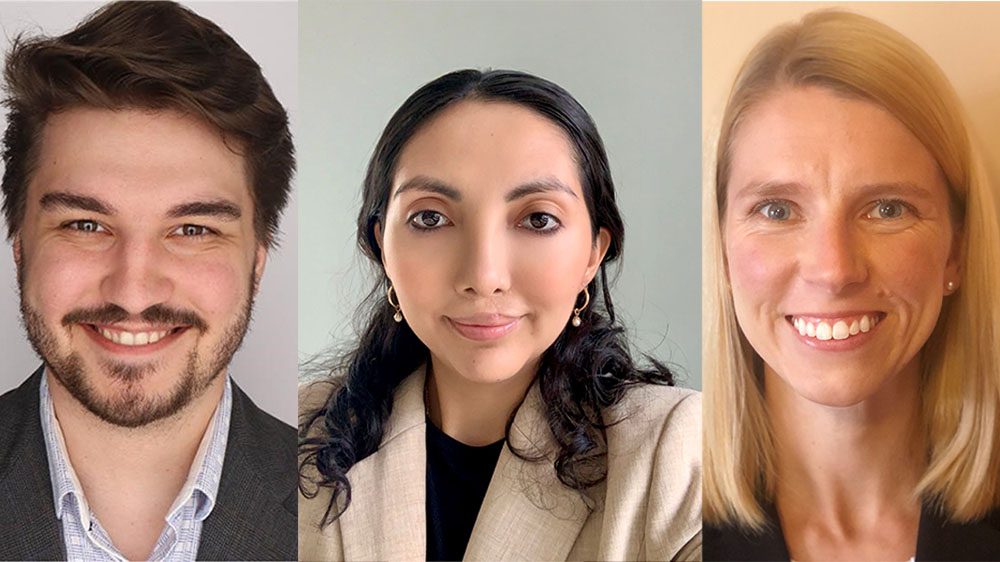

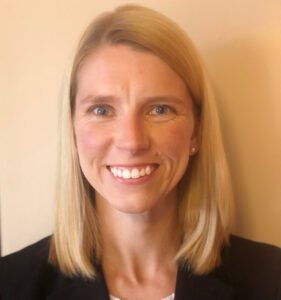 Hornsby grew up in Stafford, Virginia, and earned a Bachelor of Science degree in biology from VMI before attaining a Doctor of Medicine degree from Eastern Virginia Medical School. She completed her SHECP internship at Daily Planet Health Services, a free clinic in Richmond, Virginia, that provides health services regardless of patients’ housing, financial, citizenship, or insurance status. As a primary care physician today, Hornsby said her internship reinforced her passion for helping those underserved and modeled good patient-physician relationships.
Hornsby grew up in Stafford, Virginia, and earned a Bachelor of Science degree in biology from VMI before attaining a Doctor of Medicine degree from Eastern Virginia Medical School. She completed her SHECP internship at Daily Planet Health Services, a free clinic in Richmond, Virginia, that provides health services regardless of patients’ housing, financial, citizenship, or insurance status. As a primary care physician today, Hornsby said her internship reinforced her passion for helping those underserved and modeled good patient-physician relationships.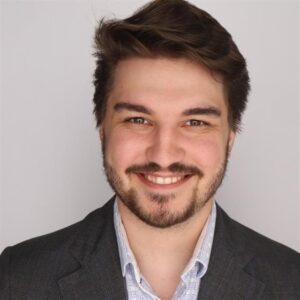 Shank graduated with a Bachelor of Arts degree in economics and business and works at Deloitte LLP in Washington, D.C., in environmental and sustainability consulting work. During his SHECP internship in summer 2017, Shank volunteered with a nonprofit in New York City called Urban Upbound, which serves communities in public housing and low-income neighborhoods. Shank’s desire to serve through SHECP was motivated by one of the same reasons he chose to attend VMI: He loved the Institute’s holistic focus on the military, academia, and, particularly, public service. “I really tried to lean into public service,” said Shank, which made SHECP a natural choice for him. “I loved the idea of stepping in to do work for a nonprofit in a topic area that I got to pick and engage with.”
Shank graduated with a Bachelor of Arts degree in economics and business and works at Deloitte LLP in Washington, D.C., in environmental and sustainability consulting work. During his SHECP internship in summer 2017, Shank volunteered with a nonprofit in New York City called Urban Upbound, which serves communities in public housing and low-income neighborhoods. Shank’s desire to serve through SHECP was motivated by one of the same reasons he chose to attend VMI: He loved the Institute’s holistic focus on the military, academia, and, particularly, public service. “I really tried to lean into public service,” said Shank, which made SHECP a natural choice for him. “I loved the idea of stepping in to do work for a nonprofit in a topic area that I got to pick and engage with.” Siles-Suaznabar earned a Bachelor of Arts degree from VMI with a double major in international studies and modern languages and cultures (Spanish) and now works at Washington Navy Yard in Washington, D.C. For her SHECP internship in summer 2016, Siles-Suaznabar worked at City Squash, a nonprofit focused on enabling New York City youth to fulfill their academic, athletic, and personal potential.
Siles-Suaznabar earned a Bachelor of Arts degree from VMI with a double major in international studies and modern languages and cultures (Spanish) and now works at Washington Navy Yard in Washington, D.C. For her SHECP internship in summer 2016, Siles-Suaznabar worked at City Squash, a nonprofit focused on enabling New York City youth to fulfill their academic, athletic, and personal potential.
